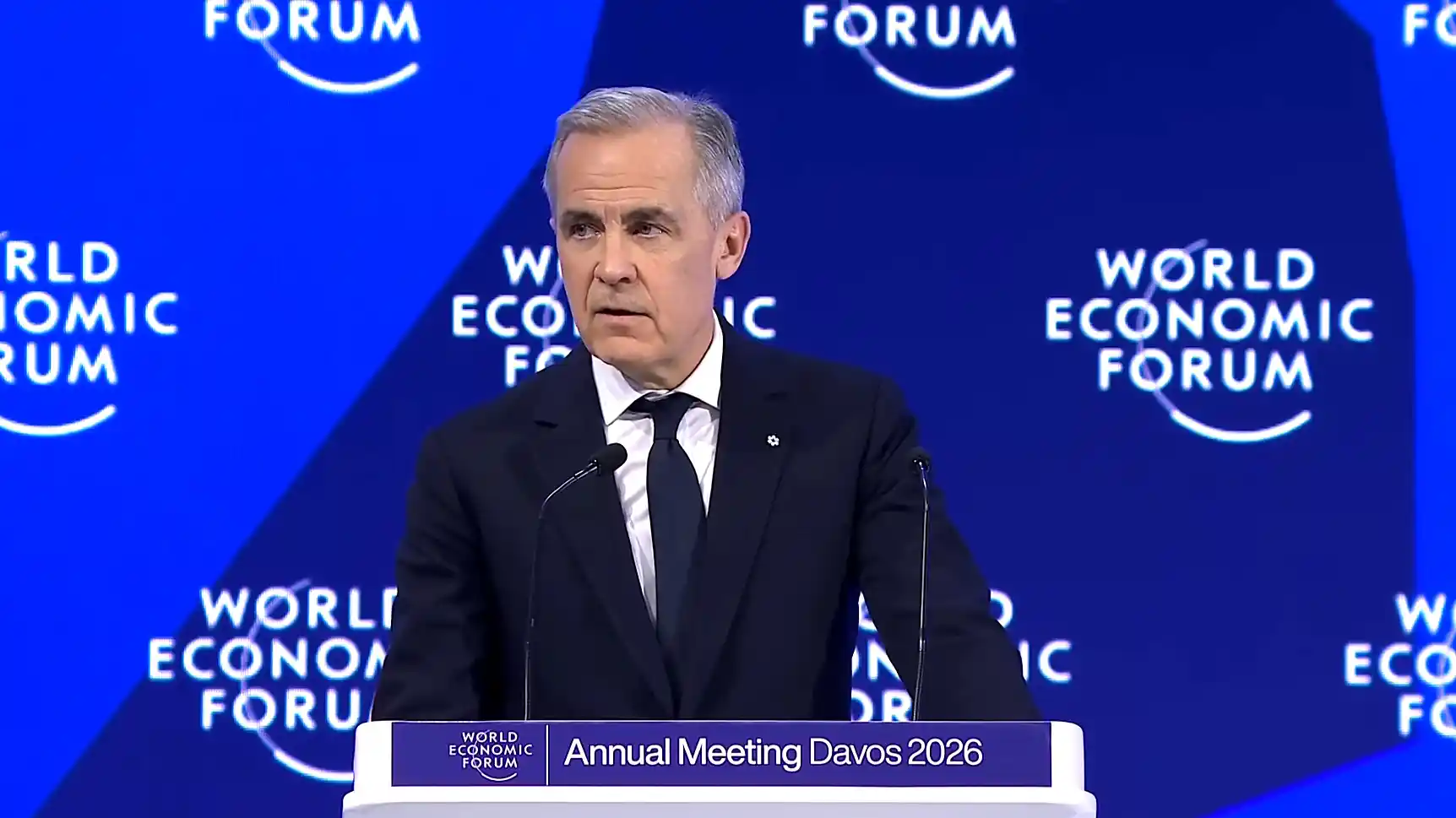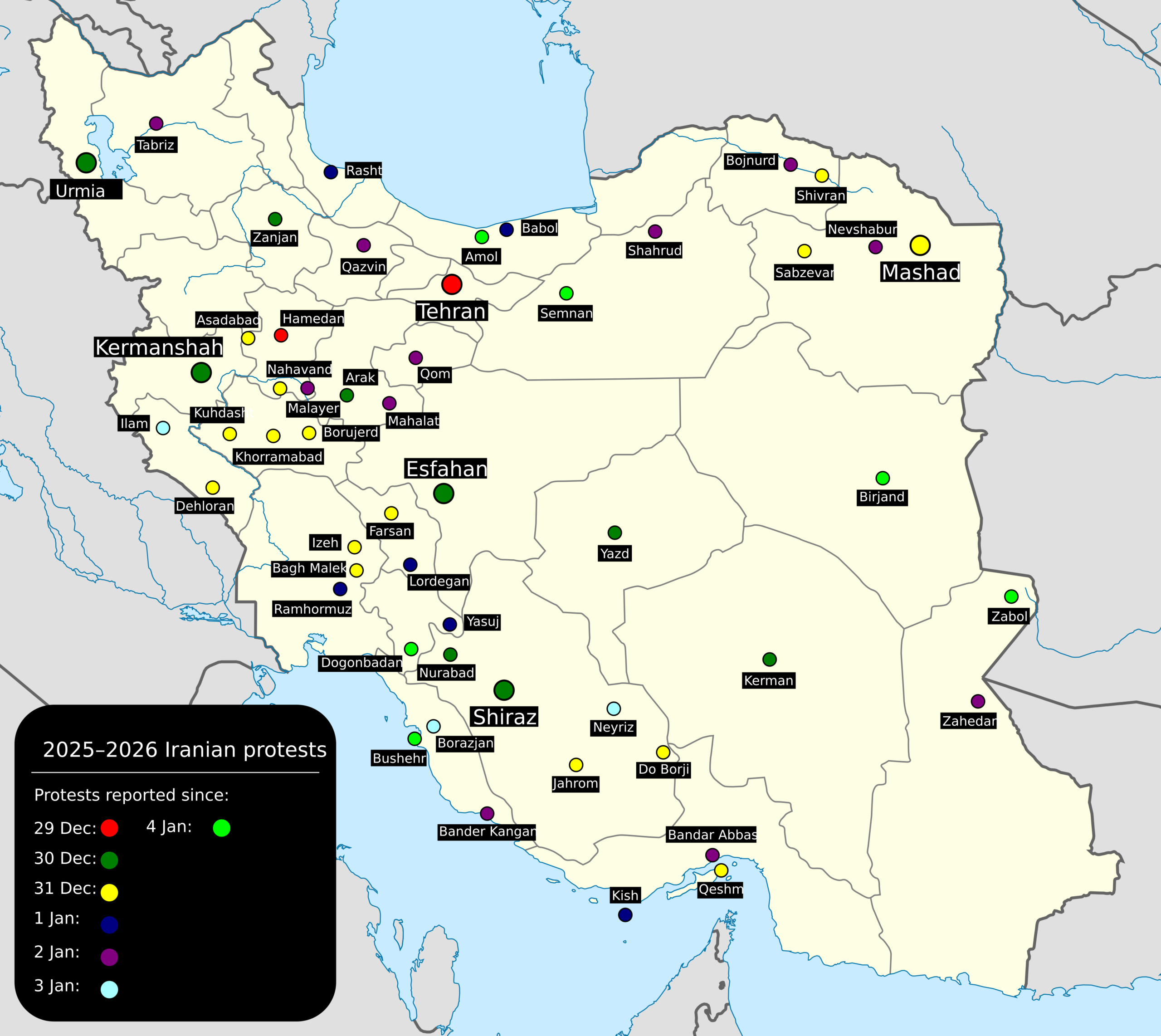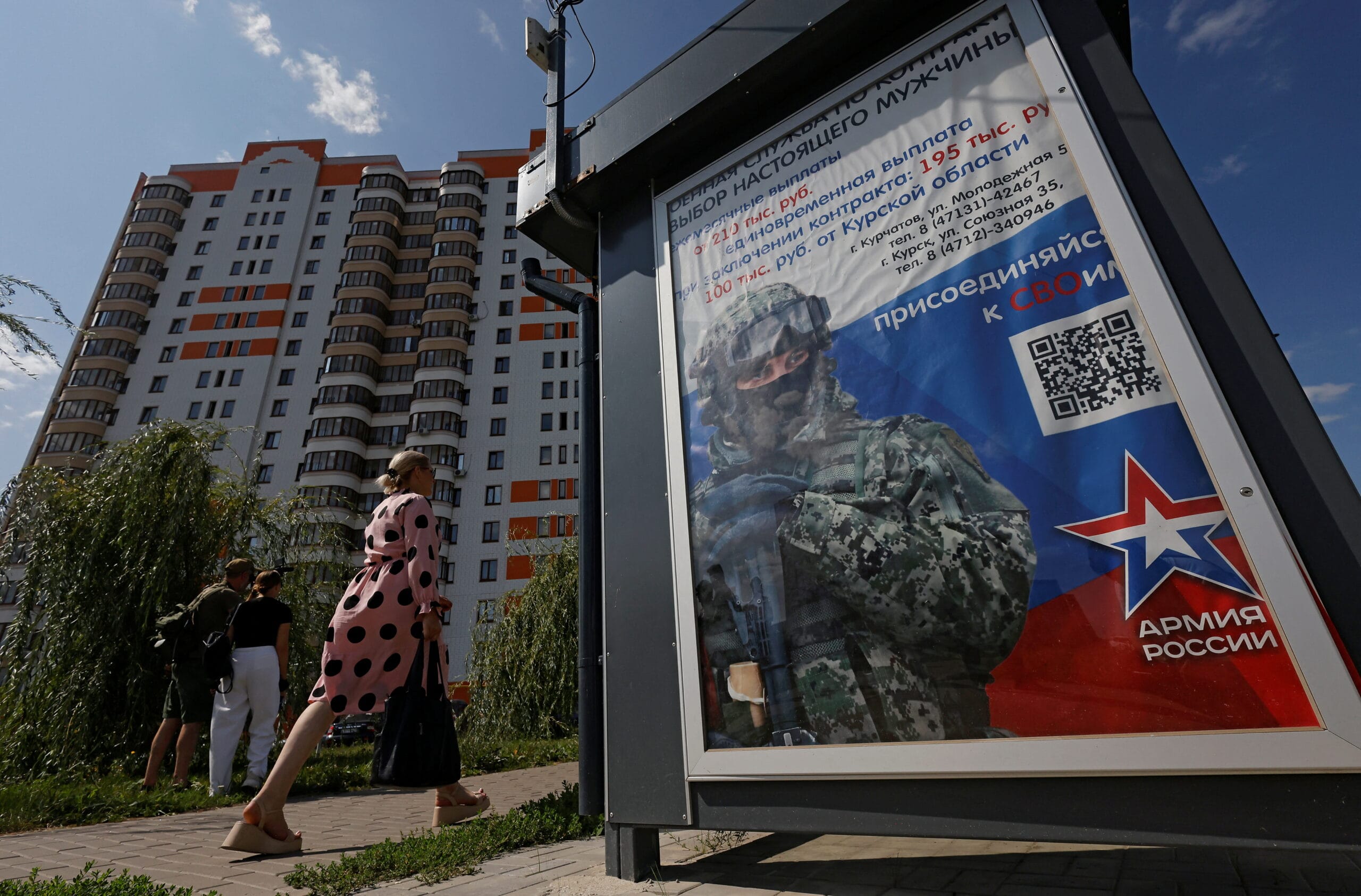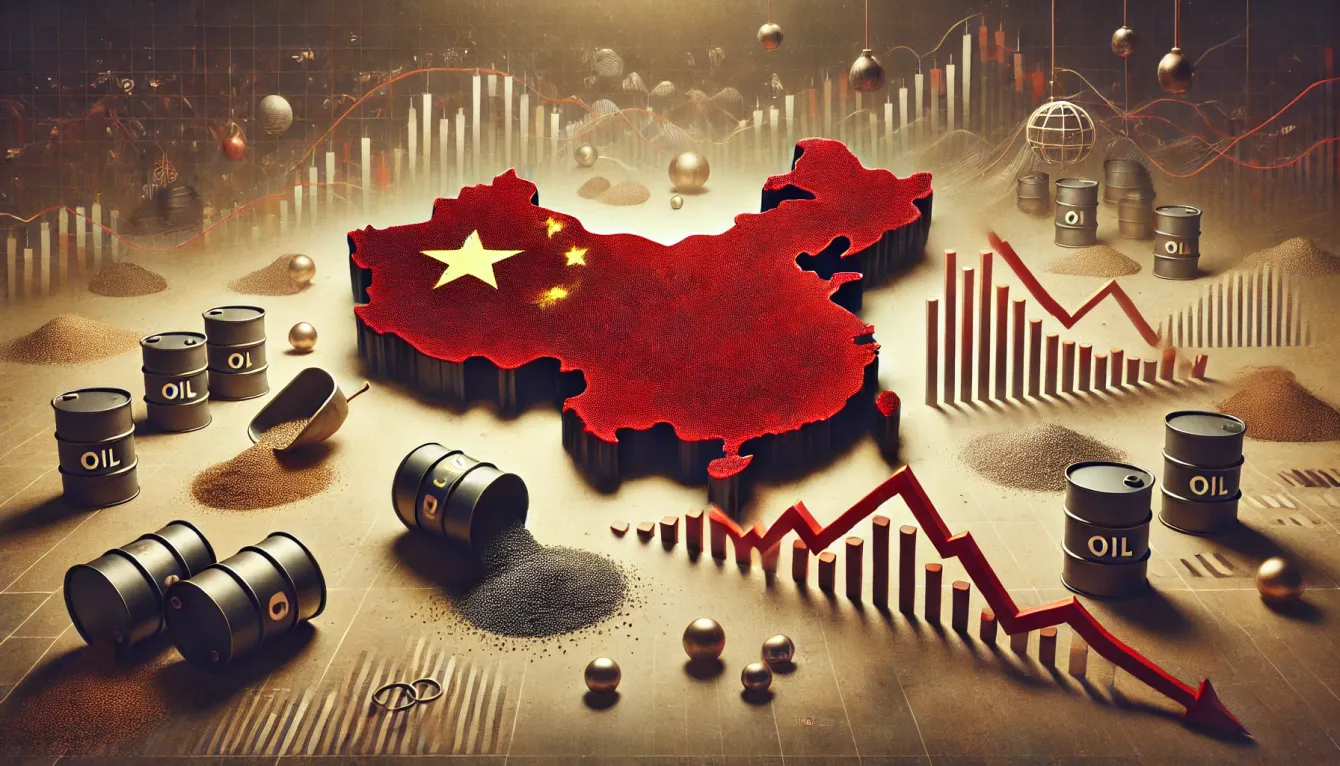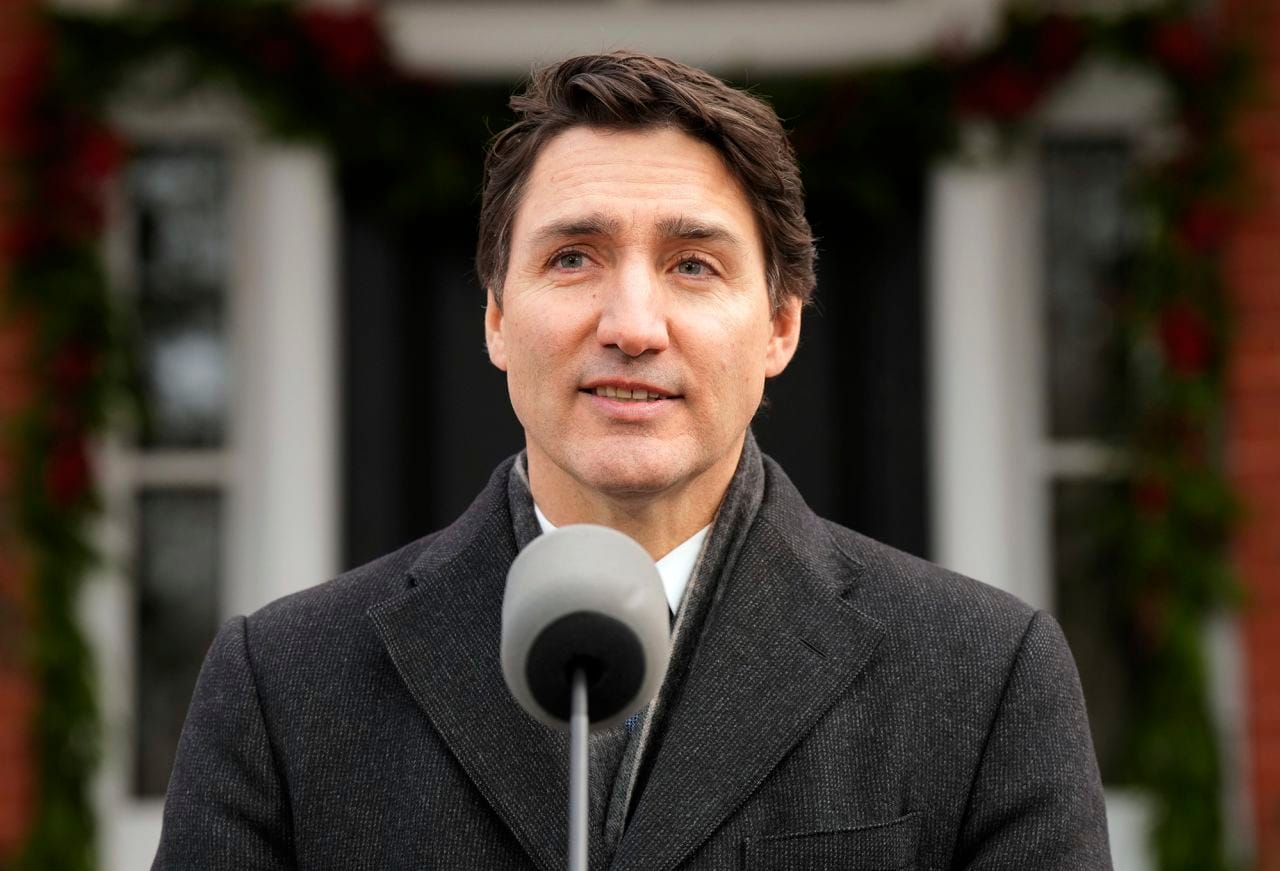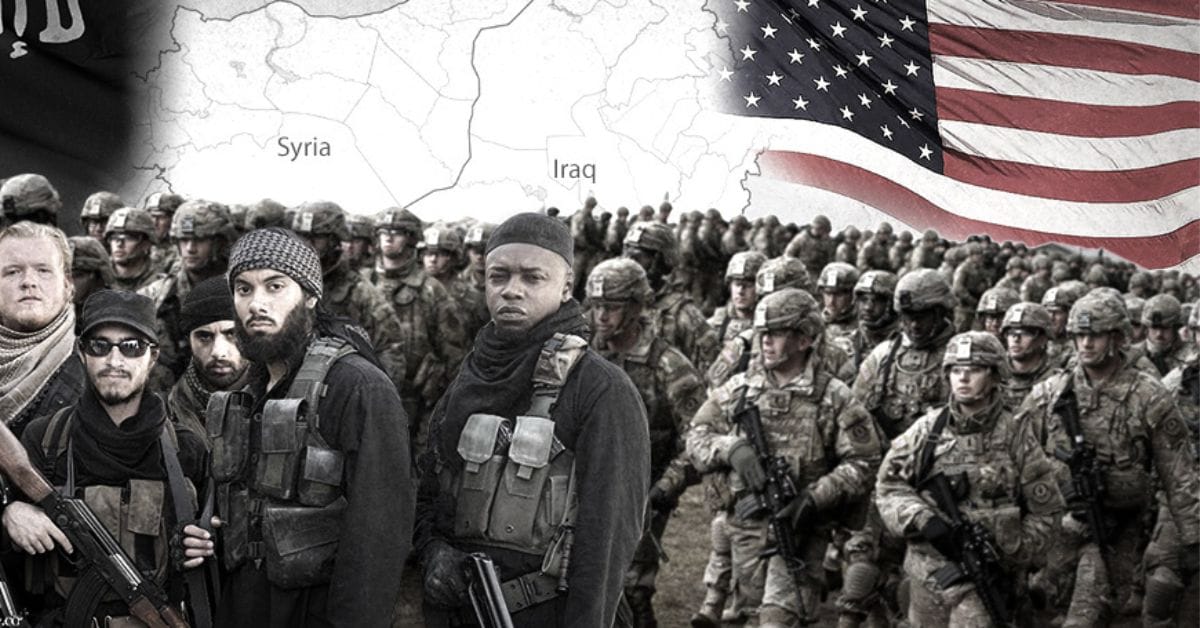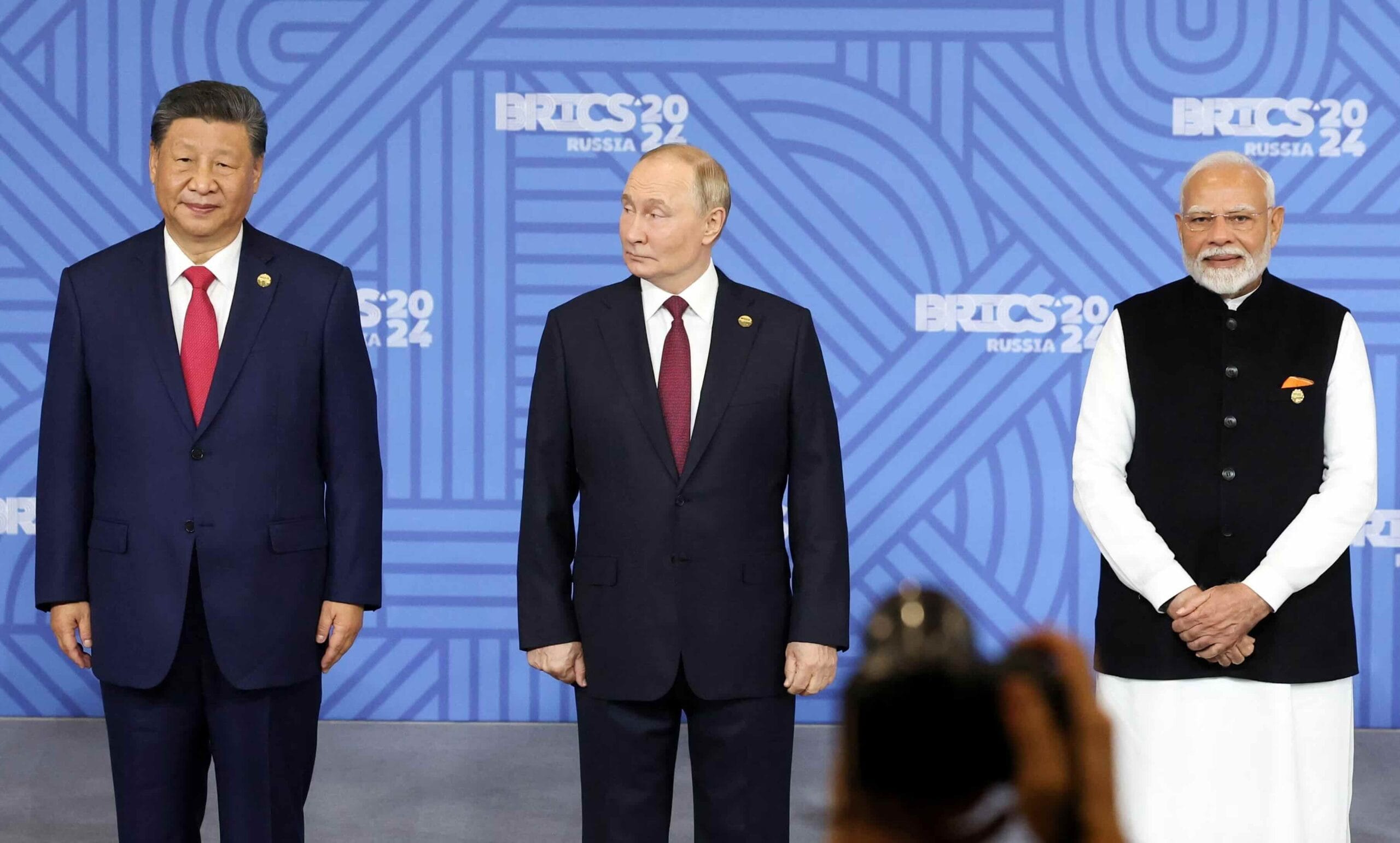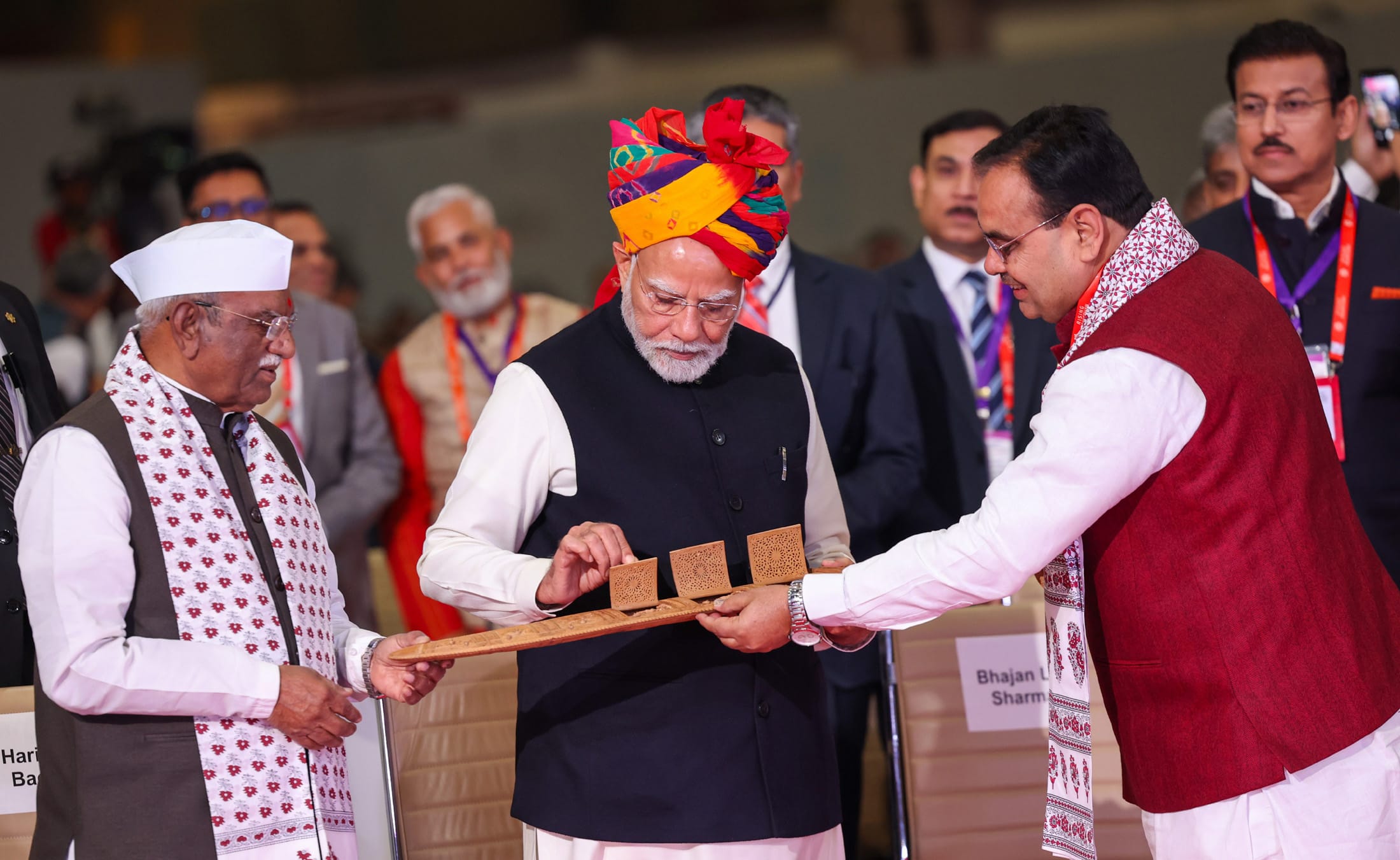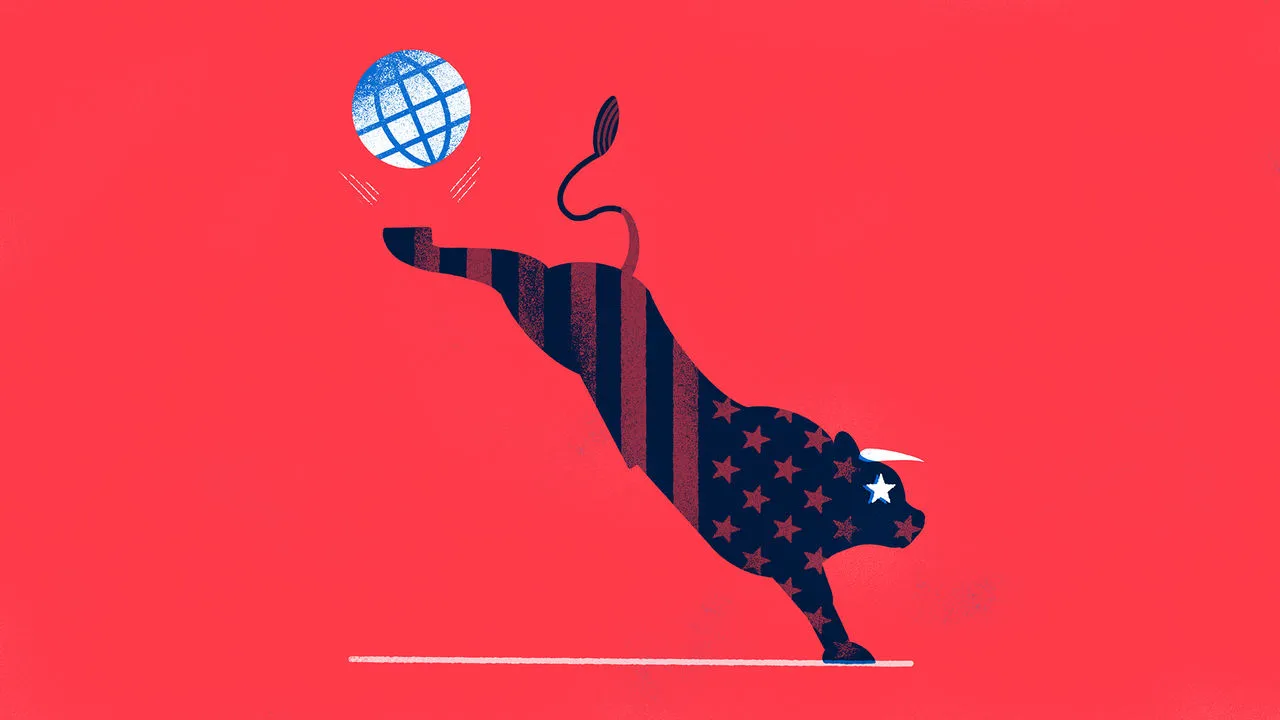The World Economic Forum held its 2026 Annual Meeting with the theme “A Spirit of Dialogue,” once again transforming the alpine silence of Davos into motorcades, guarded passageways, and rushed diplomacy. This year, however, the atmosphere was everything from formal. Davos 2026 took place in a world that is becoming more and more defined by technological advancements, geopolitical division, and concerns about climate change.
Tag: Economy
Economic Collapse and Political Revolt: Iran on the Edge
Since the last week of December 2025, Iran has seen its largest uprising in years. The immediate cause was the collapse of the national currency, the rial. Shopkeepers in Tehran’s Grand Bazaar shut their stores in protest, sparking a nationwide demand for political change. What started as an economic complaint quickly escalated into a direct challenge to the theocracy. The unrest spread to at least 78 cities and over 200 locations by early January 2026. This movement, met with harsh repression, has tested the regime’s stability.
Is Russia’s Economy Slowing or Stalling?
Data released on Wednesday will help answer an important question: is Russia’s economy slowing or stalling? In the three years since the country invaded Ukraine, its economy has held up better than most observers had expected. Unemployment fell to just 2%. GDP growth has been decent due to oil exports, which were strong despite Western sanctions. Russian consumers benefited from the knock-on effects of an enormous boost to spending on defence, welfare and infrastructure. But that could now be changing. In late 2024 the West tightened its financial infrastructure and oil trade.
A Snapshot of China’s Economy in 2024
On January 17, 2025, the National Bureau of Statistics (NBS) of China released the GDP figures for the year 2024. The statistics show that China achieved its 2024 GDP target of 5 per cent in December 2023 at the CEWC meeting. The economy peaked in 2007 with a 14.2 per cent growth rate but stagnated after President Xi Jinping implemented the ‘Three Red Lines’ policy to improve the real estate sector. Stimulus measures and impressive Q4 growth from exports and manufacturing ended the year positively. The GDP totalled RMB 134.91 trillion (US$18.80 trillion) with a 5% year-on-year growth rate in constant prices, meeting the government’s objective.
Justin Trudeau Resigns as Canada’s Prime Minister
On January 6th Justin Trudeau, Canada’s prime minister, announced his resignation. Over the past year he has became an isloated and deeply polarising figure as supporters have abondoned his Liberal Party, angry that it has failed to tackle inflation, housing costs and the strains from high immigration. In the coming weeks the Liberals will be gripped by a leadership struggle. Potential replacements include Mark Carney, who ran the Bank of England, and before that the Bank of Canada; Chrystia Freeland, whose surprise resignation as finance minister precipitated the crisis that forced Trudeau out; and Dominic Leblanc, who succeeded Freeland as finance minister.
Is Luxury Losing its Spark? Affordable Exclusivity to the Rescue
The global luxury industry, long reliant on the wealthiest clientele, is facing a critical crossroads. As prices soar, even the affluent are beginning to feel the pinch, particularly in key markets like China. Luxury brands, which have historically thrived on exclusivity and high margins, are now confronting the dual challenge of maintaining their elite status while appealing to a broader, more aspirational customer base. The question at the heart of the industry’s future: Can luxury remain exclusive without pricing itself out of the market?
Islamic State is back in the United States
On New Year’s Day Shamsud-Din Jabbar, a 42-year-old American, rammed a pickup truck into a crowd in New Orleans, killing at least 14 and injuring 35. The FBI says it was terrorism; Jabbar had an Islamic State flag. If Jabbar was inspired by the ISIS, the Jihadist group can add the attack to its recent successes. Exactly a year ago, an ISIS terrorist killed 95 civilians in Iran during a ceremony to commemorate Qassam Soleimani, a top general assassinated by America.
BRICS: India’s Position in the Emerging Global South Alliances
The BRICS (Brazil, Russia, India, China, and South Africa) grouping has been the forerunner of global economic and political developments for over a decade. The BRICS countries account for over 40% of the world’s population and over 25% of global GDP. They are also among the fastest-growing economies in the world. India is an important player in the BRICS grouping. It is the second most populous country in the world and the sixth largest economy. India has also been growing swiftly in recent years, with GDP growth comprising over 7% per year over the past decade.
Para Diplomacy: Driving the Rising Rajasthan Investment Summit
Para diplomacy can be understood as the actions initiated by states, provinces, or cities to establish international relations and promote their commercial interests. It also gives regions leverage to engage foreign investors and governments hence opening doors for partnership and capital investment. Rajasthan has adopted this concept in practicing its tourism policies by holding road shows and investor meets nationally and internationally. Such efforts are in the pursuit of introducing itself to a network of potential investors and marketing the state as the hub of opportunities in different fields.
The World’s Economic Titans this Year
By the start of 2024 high inflation had forced the Federal Reserve to raise interest rates to 5.5% – their highest level for more than two decades. Many expected America to have a recession. Instead, its economy has boomed. In the third quarter it grew by 2.8% year on year – a full percentage point more than forecast in July. America’s unemployment rate is around 4%, well below the average of the past 30 years. And inflation is finally coming down. Output per person is 40% higher in America than in Western Europe and Canada and 60% higher than in Japan.
